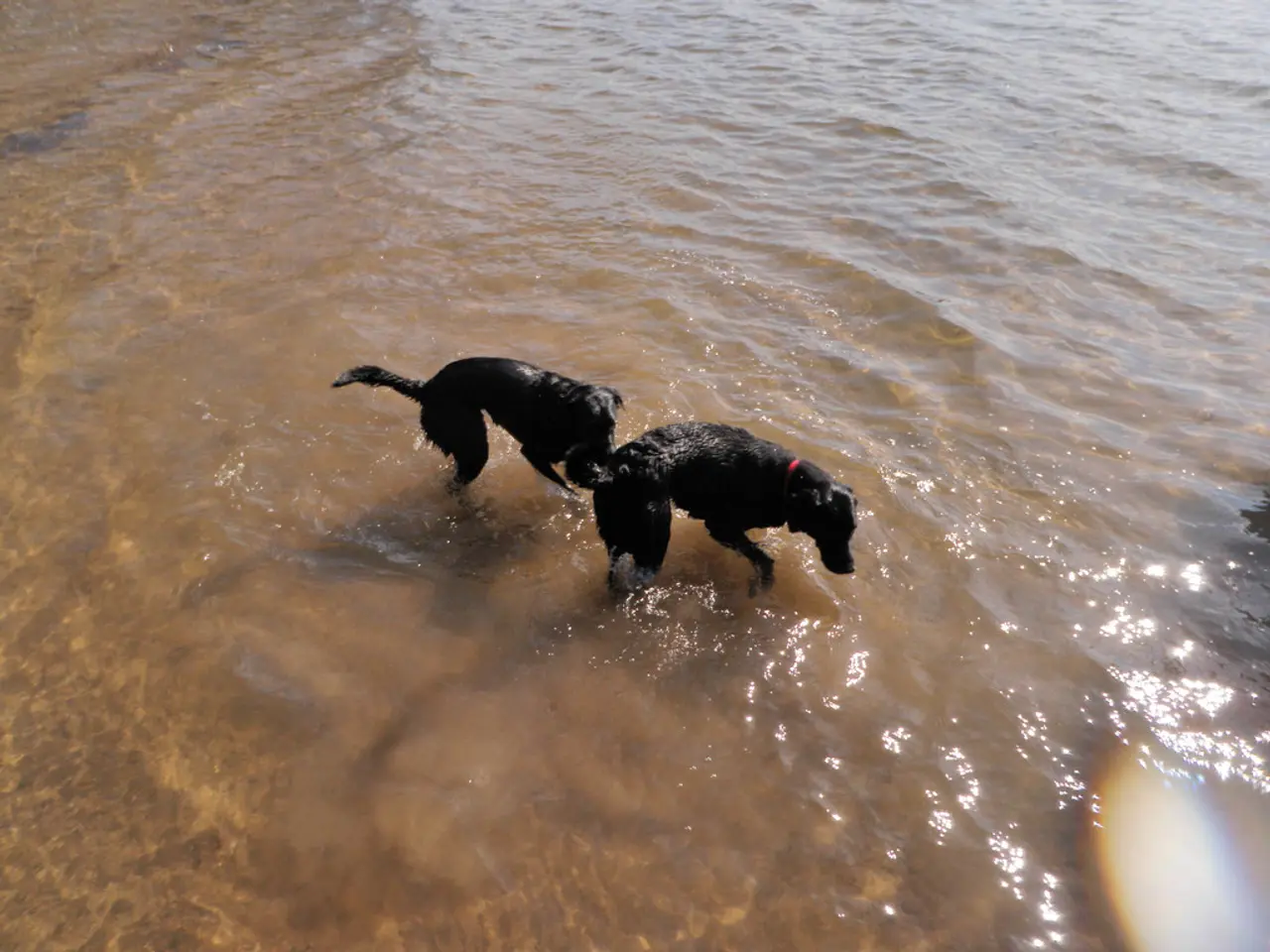Important Tips for Preventing Dehydration in Pets Every Owner Should Know (Via a Veterinarian)
In the realm of pet care, maintaining proper hydration is a crucial aspect that should never be overlooked. Dehydration can pose serious health risks for both cats and dogs, and recognizing the signs and taking preventative measures is essential.
For our feline friends, signs of dehydration include dry or tacky gums, skin tenting (where the skin slowly returns to normal after being pinched), and concentrated or darker yellow urine. Lethargy and lack of appetite may also be indicators. To help prevent dehydration, provide fresh water frequently, add wet food to their diet, and make water more appealing by adding tuna juice or chicken broth. Offering water in forms your cat prefers, such as a bowl or running tap, can also encourage drinking.
Dogs, on the other hand, may display dry or sticky gums, lethargy or weakness, excessive panting, sunken eyes, dry nose, loss of skin elasticity (skin tenting), reduced appetite, and darker or infrequent urination as signs of dehydration. Dogs pant to cool themselves, which can cause increased fluid loss especially in hot weather or during heavy exercise. Prevent dehydration by ensuring constant access to fresh water, monitoring for early symptoms, and providing shade and limiting heat exposure.
A simple test for dehydration in both cats and dogs is skin elasticity: gently pinch and lift the skin on the back of the neck or shoulder—if it does not quickly snap back, dehydration is likely. Other visual checks include observing gums and eyes, as well as monitoring urine color and frequency.
To prevent dehydration, it's important to ensure fresh water availability, enhance hydration via wet food or broth, and monitor pets for dry gums, sunken eyes, skin tenting, dark urine, lethargy, and panting. Offering pets water during walks, mixing a splash of water into a dog's food, and placing multiple water bowls around the home and yard can also encourage regular drinking. In some cases, rehydration solutions may be beneficial.
Dr Aimee Warner, a resident veterinarian at Waggel, emphasizes the importance of hydration in pet health: "Hydration is one of the most fundamental aspects of pet health, and prevention is lifesaving." By following these simple guidelines, pet owners can ensure their furry companions stay hydrated and healthy.
- Proper hydration is critical for pet health, especially for cats and dogs, as dehydration can lead to significant health risks.
- In feline friends, signs of dehydration include dry or tacky gums, skin tenting, concentrated or darker yellow urine, lethargy, and lack of appetite.
- To help prevent dehydration in cats, provide fresh water frequently, add wet food to their diet, and make water more appealing by adding tuna juice or chicken broth.
- Dogs may display dry or sticky gums, lethargy or weakness, excessive panting, sunken eyes, dry nose, loss of skin elasticity, reduced appetite, and darker or infrequent urination as signs of dehydration.
- To prevent dehydration in dogs, ensure constant access to fresh water, monitor for early symptoms, and provide shade and limit heat exposure.
- The skin elasticity test can reveal dehydration in both cats and dogs; if skin does not quickly snap back after being pinched, dehydration may be present.
- To maintain pet hydration, pet owners should ensure fresh water availability, enhance hydration via wet food or broth, monitor pets for symptoms, and consider rehydration solutions in certain cases, thereby promoting pet health and wellness.




